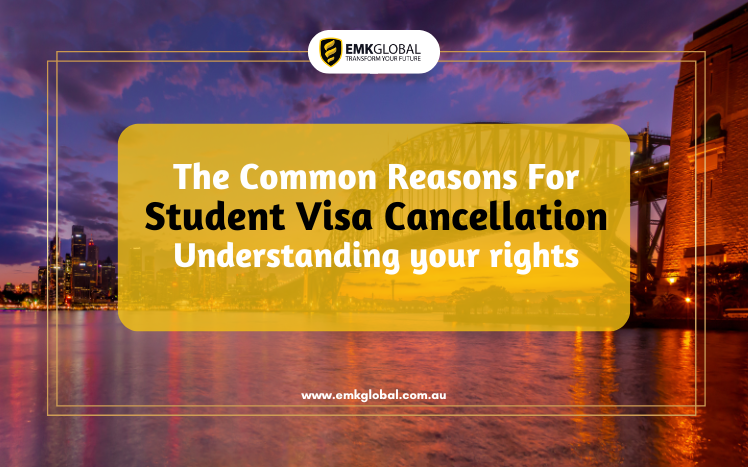Introduction
Navigating the intricacies of student visas can be a daunting task, especially when faced with the possibility of cancellation. Understanding the common grounds for such cancellations is crucial for students to protect their rights and stay compliant with visa regulations. In this comprehensive guide, we delve into the 12 common grounds that may lead to student visa cancellations, shedding light on each scenario and offering insights on how to navigate them.
1. Non-attendance Despite Compliance (Condition 8202)
One common ground for visa cancellation is when a student is found to be working in another state or territory while their course is in session, despite technically complying with condition 8202 regarding attendance.
2. Extensive Periods Without Study
Students who enroll but have extended periods without actual study, such as unreasonable gaps between courses, may also face visa cancellation.
2.1 Lack of Course Details Awareness
Being unaware of essential details regarding one’s course or education provider’s location can also lead to visa cancellation.
3. Proxy Attendance
Arranging for someone else to attend classes or exams on behalf of the visa holder is a serious violation that can result in visa cancellation.
4. Admission of Work as Primary Purpose
If during an interview, a visa holder admits that their primary intention in Australia is to work rather than study, their visa may be at risk of cancellation.
5. Failure to Complete Studies
Staying in Australia for a significant period without completing any course of study or showing progress towards an educational qualification can lead to visa cancellation.
6. Non-Genuine Reasons for Deferral
If a deferral is granted by an education provider based on non-genuine reasons, such as false claims of family emergencies or personal deferrals without legitimate grounds, it can result in visa cancellation.
6.1 Misbehavior-Related Deferrals
Deferring a course due to the student’s misbehavior is another scenario that can jeopardize their visa status.
7. Deferral for Inappropriate Reasons
If a deferral is granted for reasons not deemed compassionate or compelling, such as to allow more time for work rather than genuine personal reasons, it can lead to visa issues.
8. Failure to Resume Studies After Recovery
In cases where a student has recovered from a personal illness but fails to resume studies despite being fully capable, visa cancellation may occur.
9. Fraudulent Documentation
Using fraudulent or misleading documents to obtain deferrals or other academic accommodations can result in severe consequences, including visa cancellation.
10. Primary Intentions Beyond Study
If there is evidence suggesting that a student’s primary intention for being in Australia is for purposes other than study, their visa may be at risk.
Conclusion
Understanding the grounds for student visa cancellation is crucial for international students to protect their rights and ensure compliance. It’s essential to stay informed about visa regulations, maintain genuine intentions for study, and seek professional advice when faced with challenging situations.


